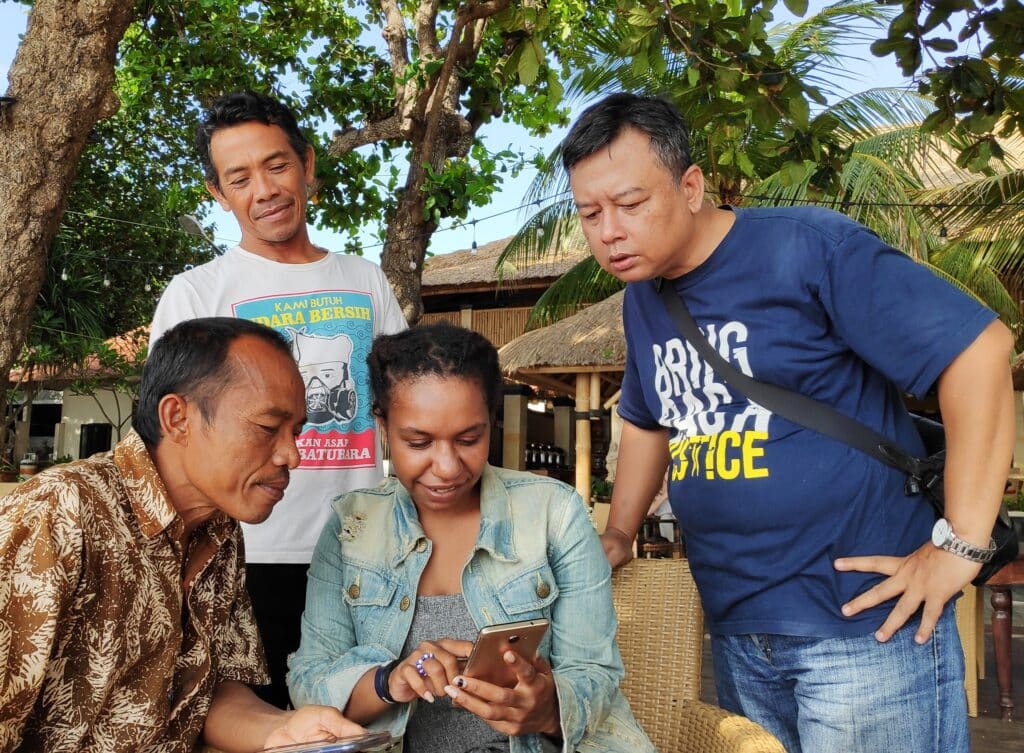
In 2017, ASF launched its activities in Indonesia with two local partners. Together, we worked to increase access to both formal and informal justice mechanisms for marginalized and groups in vulnerable situations through improved community-level, evidence based service delivery. A special focus was put on training and supporting paralegals to help them assist local populations in their justice needs.
In countries with very few lawyers per capita, paralegals are practitioners who do not possess a law degree but have a basic knowledge and understanding of the law and deliver legal advice to the population. ASF has worked with paralegals in several of its countries of intervention as they can be fundamental actors in helping local populations access justice.
A baseline perception study on paralegals and the role they can play in strengthening access to justice was produced at the start of the project. Its findings were used to create training modules. These modules were then used by several local organizations to reinforce paralegals’ capacities. They address a large scope of subjects, with different thematic and geographical coverage, which made them flexible and useful for a great variety of organizations. Our partners have found it to be instrumental in supporting the enactment of the legal aid local regulation in Bali in 2019.
In the frame of the project, three digital platforms were launched to support civil society organisations.
A Case Management System was created and is now used by several organisations to manage the cases they are working on in a database. It has been developed in open source so that any legal aid organization can use it freely.
The Paralegal Information System was created to help paralegals request and receive legal support from lawyers in order to asssit them in the cases they work on.
And finally, an application called E-resource, was created to allow legal aid service providers to access books and other resources.
To support advocacy efforts, a community of practice was created with multiple stakeholders working on legal aid issues. It allowed members to debate on future necessary legilslative reforms to promote. Those 5 years in Indonesia enabled us and our partners to draw important conclusions regarding access to justice in the region. First, it is undeniable that paralegals play an essential role in assisting local population in their justice needs. Their status needs to be further recognized by local and national authorities. Secondly, the production of flexible training modules with the possibilitly to choose the materials is easier to replicate and should be prefered to a fixed curriculum. Finally, even though the use of digital platforms to strengthen capacities of civil society organizations has been promising, it proved to be very expensive and lengthy to implement. It must be tailored for each organization, which can take months of discussions. The availability of IT officer and maintenance through funding source must be found to ensure the service sustainability.



